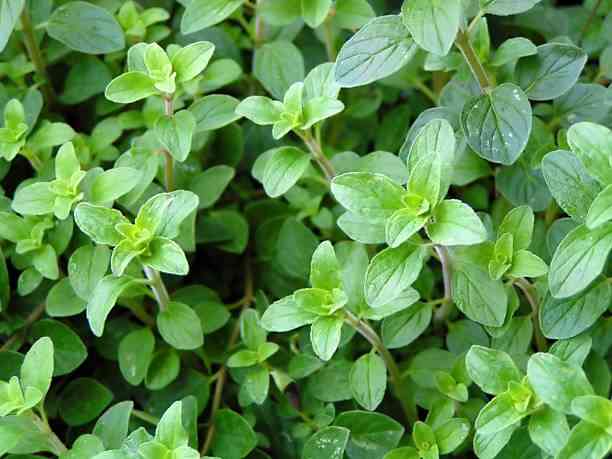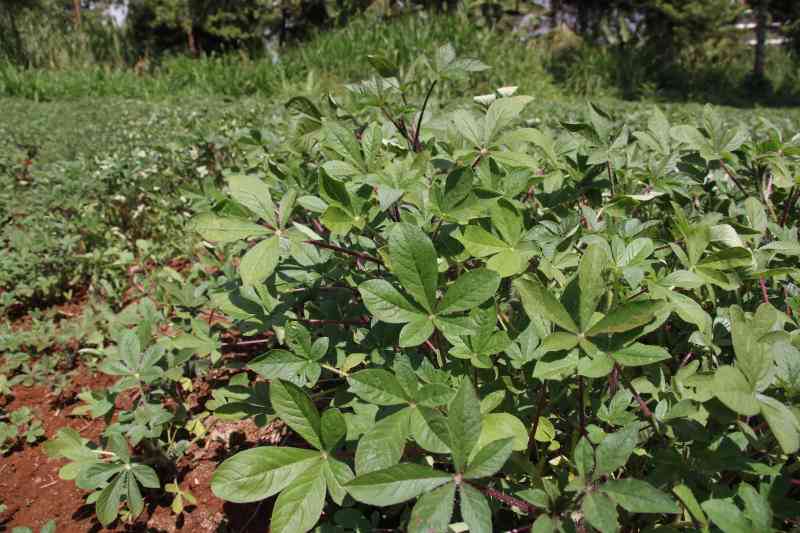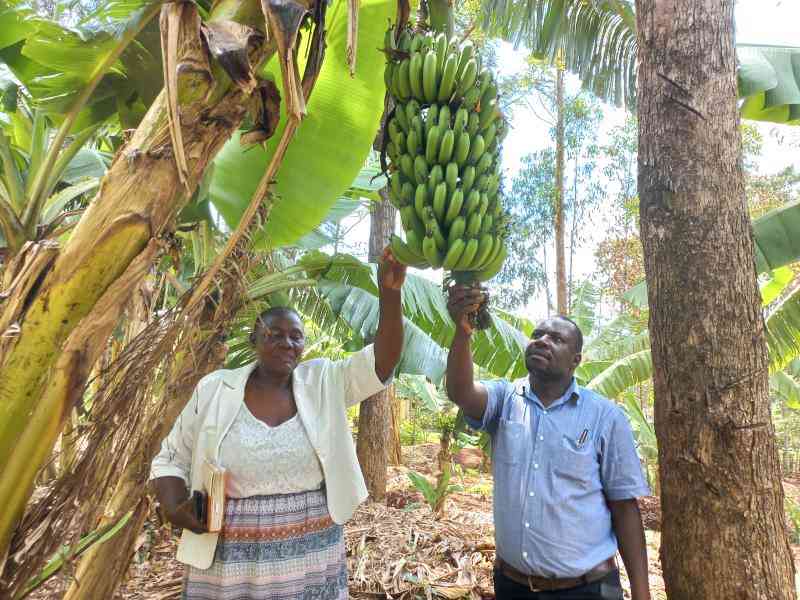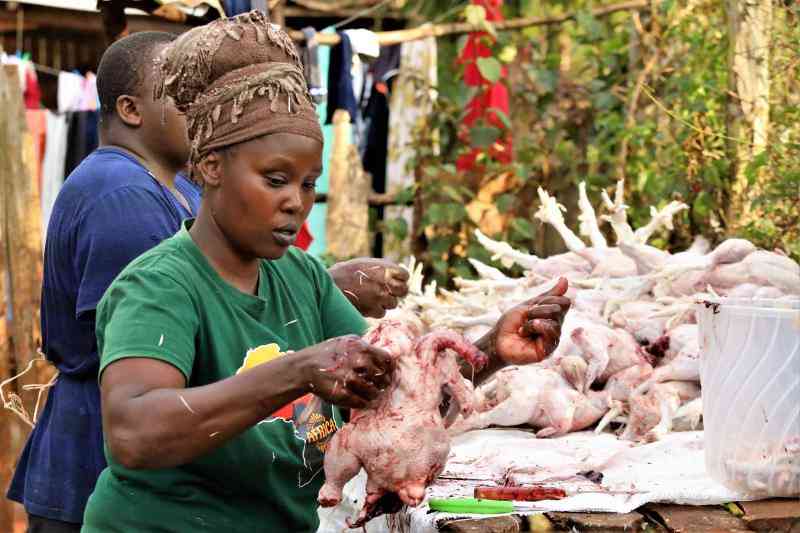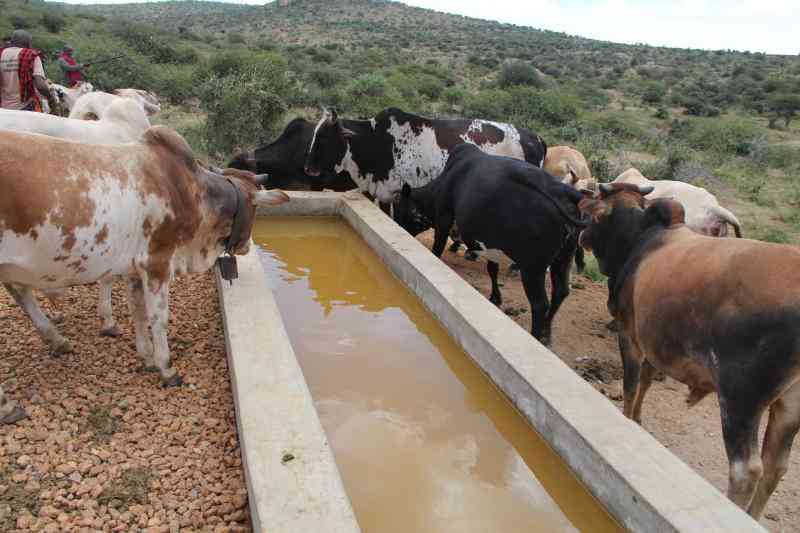From a vantage position in his farm at Uae village in Mutomo sub-county, retired police officer Jabob Ngao scans his eyes through blossoming Mukau trees and nods in approval.
“They are only one-year-old but see how they are shooting up. Their growth is amazing,” he says, moving from tree to tree, a specialised knife at hand to prune unwanted branches. Most of them are more than three metres high.
In this two and half acre piece of land, Ngao has planted 2,000 Mukau trees, scientifically known as Melia Volkensii, one of the high fetching hardwood famed for its quality timber. It is in the same family as Mahogany.
It is a trade he started while serving as a senior prosecutor with the Kenya Police Service. When he retired in 2017, he plunged headlong into Mukau farming, buoyed by past and current returns.
The farmer says that demand for Mukau timber and seedlings is so huge that he cannot meet it, considering he is among only 30 Mukau farmers in Kitui County.
When Smart Harvest visited his farm, we found him preparing nursery beds where he plans to put up 20,000 seedlings. This is an increase from 5,000 seedlings he sold in May. “I got an order from a client in Kilifi and sold all the 5,000 seedlings I had. I then decided to expand the nursery because there is ready market,” says Ngao.
He sells a Mukau seedling at Sh50. For the 20,000 seedlings he is targeting, he hopes to reap about Sh1 million in sales.
“Even now people are inquiring whether I have the seedlings. The demand is constant. Many people have realised the commercial value for Mukau and are going for it,” he says.
Preparing Mukau seedlings
To prepare the seedlings, Ngao and his farmhands harvest berries from mature trees and break them to get the seeds inside.
The seeds are then planted in a seedbed which has ordinary soil mixed with sand and sufficiently watered.
“After planting the seeds, the seedbed is fully covered with a polythene paper to ensure maximum heat and prevent evaporation. After three days, the seeds germinate,” he explains.
After germination, the seedlings are then transferred to seedling pots and placed in a nursery where they are grown for three months until they are ready for sale or to be transplanted to a farm.
Ngao says at this tender stage, a farmer needs to spray the seedlings with chemicals to prevent them from soil fungi and pests. He advises spraying after every two weeks, which also strengthens the stems of the young trees.
Why Mukau is the preferred wood
For his plants, he has sunk a farm pond with a 90,000 cubic-metre capacity which is more than enough for his venture since Mukau tree is not a heavy consumer of water.
About two months ago, Ngao harvested 30 mature trees in his farm and the returns have made him look at the future with contentment. From these he sold timber, used some to make home furniture and still has some timber remaining. One foot of Mukau timber goes for between Sh100 and Sh150 at local hardware shops. A sizable coffee table would fetch between Sh4,000 and Sh5,000 in local markets.
Timber from Mukau tree which is highly valued for its durability. It is resistant to termites and other pests is popular for making beds, doors and others pieces of furniture such as tables, wall units, curtain boxes among others.
Ngao says Mukau trees are not labour intensive. Once planted at the age of three months, he says the trees do not need to be watered and can survive on small amount of rains. This makes it ideal for arid and semi-arid regions.
“They are also not sprayed with chemicals since they are now past pest attacks. What is needed is regular pruning to ensure the trees grow straight for quality timber,” he says, adding that inter-cropping with food crops is ideal for maximum farm production.
A well-managed Mukau tree can grow up to 30 feet, with estimates from Kenya Forestry Research Institute (Kefri) showing that a mature tree can fetch up to Sh30,000 in timber. With 2,000 trees, Ngao says his is a sound retirement plan.
Mukau farming challenge
The challenge for Mukau farming, especially one meant for timber production is the long period it takes to mature; between 8 and 12 years. “Mukau farmers need to be patient as it is a long term investment but it will pay handsomely at some point,” he says.
Researchers at the regional office of Kefri in Kitui have devised genetic technology that will reduce the maturity period for Mukau trees to between 6 and 8 years, a technology that is being promoted among farmers in dry counties of Kitui, Makueni, Kajiado, Garissa, Isiolo and Tana River. The tree is hailed as a solution in combating climate change.
[email protected]
Want to get latest farming tips and videos?
Join Us
 The Standard Group Plc is a multi-media organization
with investments in media platforms spanning newspaper print operations,
television, radio broadcasting, digital and online services. The Standard Group
is recognized as a leading multi-media house in Kenya with a key influence in
matters of national and international interest.
The Standard Group Plc is a multi-media organization
with investments in media platforms spanning newspaper print operations,
television, radio broadcasting, digital and online services. The Standard Group
is recognized as a leading multi-media house in Kenya with a key influence in
matters of national and international interest.
 The Standard Group Plc is a multi-media organization
with investments in media platforms spanning newspaper print operations,
television, radio broadcasting, digital and online services. The Standard Group
is recognized as a leading multi-media house in Kenya with a key influence in
matters of national and international interest.
The Standard Group Plc is a multi-media organization
with investments in media platforms spanning newspaper print operations,
television, radio broadcasting, digital and online services. The Standard Group
is recognized as a leading multi-media house in Kenya with a key influence in
matters of national and international interest.

